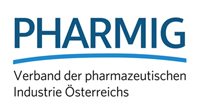Of the 77 new drugs, 39 have new active ingredients – most of them are used to treat cancer, rare or neurological diseases
Every new therapy means an additional opportunity to support more people in dealing with their disease. The products recommended for approval by the EMA each represent significant progress in their therapeutic area and expand the diversity of drug supply in Europe.
Mag. Alexander Herzog, Secretary General of PHARMIG
Vienna (OTS) – In 2023, the European Medicines Agency (EMA) according to their report 77 drugs recommended for approval. 39 of these medicines are based on new active ingredients that were recommended for approval in the EU for the first time. Alexander Herzog, Secretary General of PHARMIG: “Every new therapy means an additional opportunity to support more people in dealing with their disease. The products recommended for approval by the EMA each represent significant progress in their therapeutic area and expand the diversity of drug supply in Europe.”
Almost a third of the approval recommendations from 2023 concern cancer drugs. For the treatment of neurological diseases, 11 drugs, seven of which contain new active ingredients, were recommended for approval. There were also recommendations for two vaccines to protect against respiratory diseases caused by the respiratory syncytial virus (RSV). The new therapies include the first to use groundbreaking CRISPR/Cas9 gene editing technology to treat two rare blood diseases.
There was also growth in the area of drugs for rare diseases last year. The EU Commission followed the EMA’s approval recommendations in 17 cases and approved this number of so-called orphan drugs.
“It is extremely gratifying that the risky and long drug research is bearing such fruit. It’s not just about the new therapies immensely benefiting those whose illnesses can be treated with them. These new medicines create a much more far-reaching benefit, for example when sick people become mobile or able to work again. This relieves the burden on relatives, reduces the amount of care required and can also be of benefit to the labor market and the economy as a whole. “These are all aspects that cannot be ignored when – as is unfortunately so often the case – the question of cost coverage or reimbursement comes up with innovative therapies,” concludes Herzog.
About PHARMIG: PHARMIG is the voluntary interest group of the Austrian pharmaceutical industry. The association currently has around 120 members (as of March 2024), who cover a good 95 percent of the medication market. PHARMIG and its member companies stand for the best possible security of supply of medicines in the healthcare system and ensure social and medical progress through quality and innovation.
Questions & Contact:
PHARMIG – Association of the Austrian Pharmaceutical Industry
Peter Richter, BA MA MBA
Head of Communications & PR
+43 664 8860 5264
peter.richter@pharmig.at
www.pharmig.at
